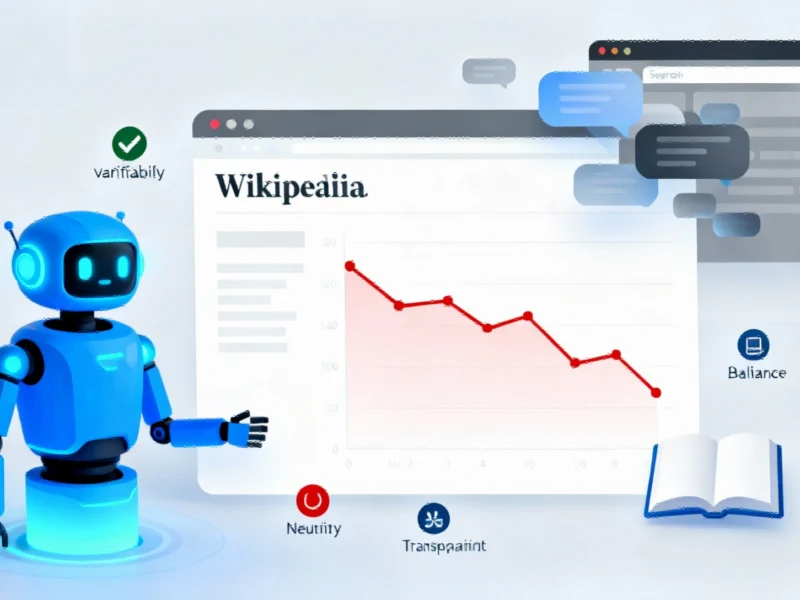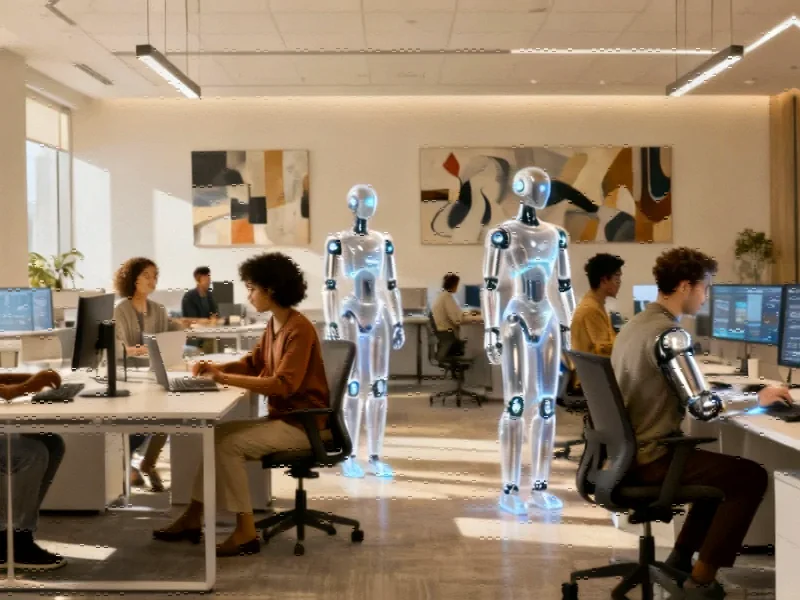Wikipedia’s Traffic Decline Linked to AI Tools
Wikimedia Foundation has revealed concerning data showing a significant drop in Wikipedia page views, which it attributes directly to the proliferation of AI chatbots and automated search summaries. According to Marshall Miller, Wikimedia’s senior director of product, the organization has observed an 8 percent year-over-year decline in traffic after implementing improved bot detection systems that provide more accurate user metrics.
“We believe that these declines reflect the impact of generative AI and social media on how people seek information,” Miller stated, emphasizing that search engines increasingly provide answers directly to users, often drawing from Wikipedia’s content without driving traffic back to the source.
The Ripple Effect on Information Ecosystem
Miller describes the situation as more than just a traffic concern—it represents an existential threat to what he calls “the only site of its scale with standards of verifiability, neutrality and transparency powering information all over the internet.” The potential consequences extend far beyond simple metrics: fewer visits could lead to diminished volunteer participation, reduced funding, and ultimately less reliable content across the platform.
The situation reflects broader industry developments where AI tools are reshaping how information is consumed and distributed. As these technologies advance, their impact on traditional knowledge repositories becomes increasingly significant.
AI’s Double-Edged Sword for Knowledge Platforms
While AI tools provide immediate answers to users, they potentially undermine the very ecosystems that feed them reliable information. Wikipedia’s model depends on human verification and community editing—processes that require sustained user engagement and participation.
This challenge isn’t unique to Wikipedia. Across the technology landscape, organizations are grappling with how to adapt to recent technology shifts while maintaining their core missions. The tension between convenience and sustainability represents one of the most pressing issues in today’s digital environment.
Proposed Solutions and Industry Response
Miller suggests that large language models and search platforms need to be more intentional about directing users to original sources. “For people to trust information shared on the internet, platforms should make it clear where the information is sourced from and elevate opportunities to visit and participate in those sources,” he writes.
This approach would help maintain the integrity of the information ecosystem while still leveraging AI’s capabilities. The conversation around proper attribution and source visibility is gaining traction across multiple sectors, including discussions about related innovations in open-source platforms and their approach to credit and contribution tracking.
Wikipedia’s Own AI Experimentation
In a somewhat ironic twist, Wikipedia had previously considered implementing AI-generated summaries at the top of its own articles earlier this summer. The project was ultimately shelved following strong opposition from the platform’s volunteer editors, highlighting the complex relationship between traditional knowledge curation and emerging technologies.
As noted in recent analysis, the balance between technological advancement and sustainable information ecosystems remains delicate. The Wikimedia Foundation’s findings serve as a crucial case study in how AI tools are reshaping digital consumption patterns, with potentially far-reaching consequences for how reliable knowledge is produced and maintained online.
The Path Forward
The situation underscores the need for collaborative solutions between AI developers and content providers. As artificial intelligence continues to transform information access, stakeholders must work together to ensure that the systems providing answers don’t inadvertently damage the sources that make those answers reliable.
This challenge represents one of many market trends where technology adoption must be balanced with consideration for long-term sustainability. The outcome will likely shape not just Wikipedia’s future, but how trustworthy information is preserved and accessed across the entire digital landscape.
This article aggregates information from publicly available sources. All trademarks and copyrights belong to their respective owners.



